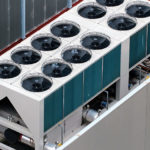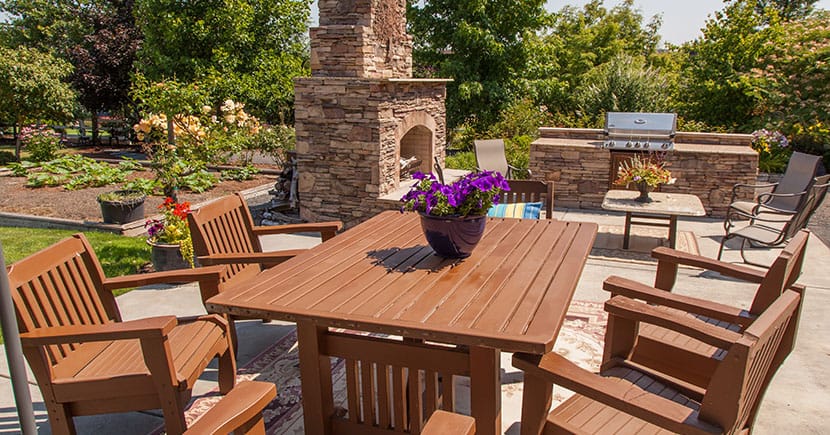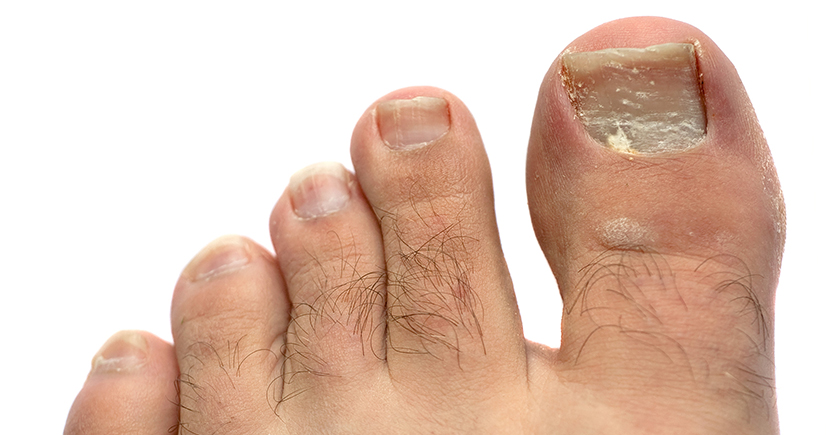You might have the word “porous” a lot when you are going out to buy natural stones for your kitchen. Granite and marble are porous while quartz countertops are non-porous. Here is a comparison of non-porous and porous materials and which one is better for your kitchen.
Porous Countertops
What Are They?
Porous stones or countertops are those materials that have a lot of gaps in the composition. These stones are made out of sediments and these sediments are cemented together by either water or high pressure when they are inside the Earth. Sometimes, the sediments can have gaps between them and because of this, these stones are termed as porous stones.
On the surface, these countertops don’t have any visible signs of high porosity and they look very much compacted, but if you drop some sort of liquid or water on the stone, the porous countertop will suck it in right away. Some examples of this type of stone and countertop are granite, marble, and limestone countertops.
These stones, when installed as countertops, need to be sealed in order to make them waterproof, otherwise, water and liquids can damage these stones and stains are also very easy to occur in these types of stones.
How Long Do They Last?
Porous countertops, on their own, are very hard materials to maintain. They tend to stain a lot; scratches are normal and you want to keep them away from water at all times. This can be quite a challenge and a huge problem. This is why it is advised to seal these stones in order to make them waterproof and durable.
With sealing, you will see a significant amount of increase in the efficiency of the stone, even though it is porous in nature. Sealing helps to fill in the gaps of the stone, so in this way, no water or liquid can penetrate inside the stone.
Care And Maintenance Of Porous Countertops
Some caring and maintenance tips for porous stones are as follows:
- Keep them dry.
- Seal them and repeat this process at least twice a year.
- Regularly clean them and get rid of any stains or spills immediately.
Non-Porous Countertops
What Are Non-Porous Countertops?
Non-porous countertops are made out of natural stones which are densely compacted in the form of slabs. The best way to test the porosity of this type of stone is to put a drop or two of water on the surface of the countertop.
If the water beads up and stays on the surface for a long amount of time, then it is a non-porous material. Some examples of non-porous materials for countertops are quartz, steel, and other man-made stones. These stones are highly durable and they don’t need sealing.
A lot of natural stones are porous, but there are some metamorphic rocks, which are non-porous in nature and can be used for kitchen countertops. These stones can go without being sealed, but as time goes on, their natural porosity starts to increase, and then you might need to consider sealing it.
Are They Better Than Porous Countertops?
They are a much better option than porous stones because you don’t need to worry about sealing them or having to clean them right away, just because you are scared of spills and stains getting permanent. It’s better to invest in the type of material that will require as little maintenance as possible.
How To Maintain Them?
Here are some things you can do to maintain non-porous countertops.
- Avoid using abrasive and harsh cleaners on these countertops. It will ruin them quickly.
- Keep these countertops dry as well. Even though they are incapable of sucking water in, you still want to keep them dry and out of reach from water or moisture. This can lead to the formation of bacteria on the surface and that is not sanitary at all.
- You can seal them if you want, to get a better protective barrier, but it’s not necessary.
Conclusion
There you have it! Now that you know everything there is to know about porous and non-porous stones and how they work in different situations, you can choose which one you want to go for. Quartz countertops don’t need sealing. You can ask more questions about them by contacting a quartz countertop installer Rockville.








